The IBPOC fellowship & Arcweave's partnership with PXR
 By
Elle Sillitoe
·
9 minute read
By
Elle Sillitoe
·
9 minute read
IBPOC fellowship director and creator of the Nefertiti Experience, Debbie Deer, discusses Arcweave's role in the emerging field of performance and XR.
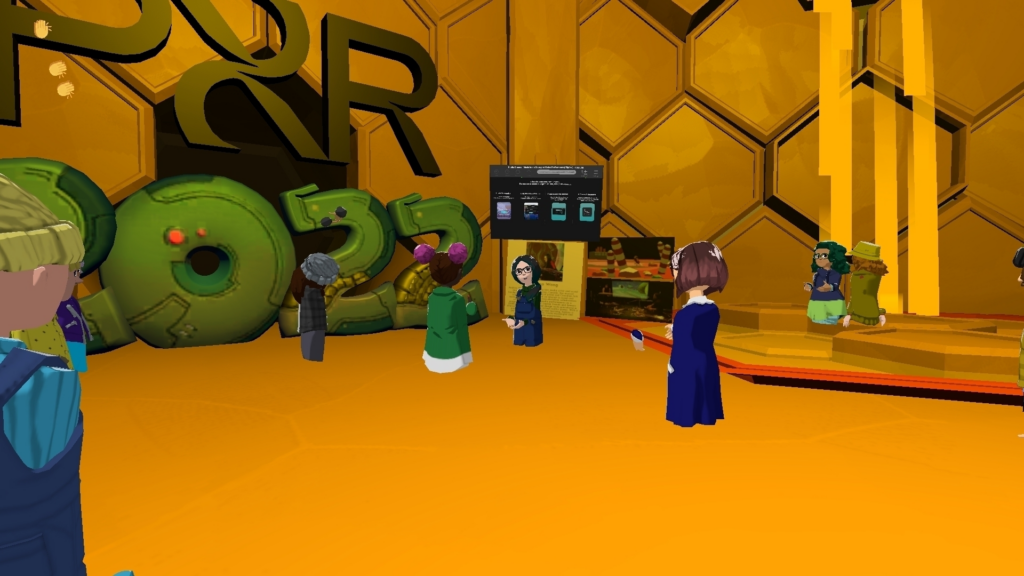
Single Thread Theatre Company, creator of the IBPOC Fellowship, is an official Arcweave Ambassador. Arcweave is also a proud sponsor of the IBPOC Fellowship which gives indigenous, black, and people of colour artists the opportunity to learn XR. XR is a field of emerging technology which refers to extended reality and encompasses virtual, augmented, and mixed reality.
Firstly, do you mind just sharing a bit about yourself and how you’re involved with the IBPOC fellowship?
DD: I’m Debbie Deer, I’m a creative technologist specializing in virtual, augmented, and mixed reality production for education, entertainment, and advertising.
I got involved in the fellowship because two years ago they actually had me as a presenter for one of my XR pieces, the Nefertiti experience, and then I was honoured enough to be mentored with the OYA Scale Up Immersive Program and I came back to PXR and said, ‘Hey we should do a program like this because it really saved my life.' We applied for funding through the Canada Arts Council, and… we got through! So, now it’s been two years and they invited me to be the director.
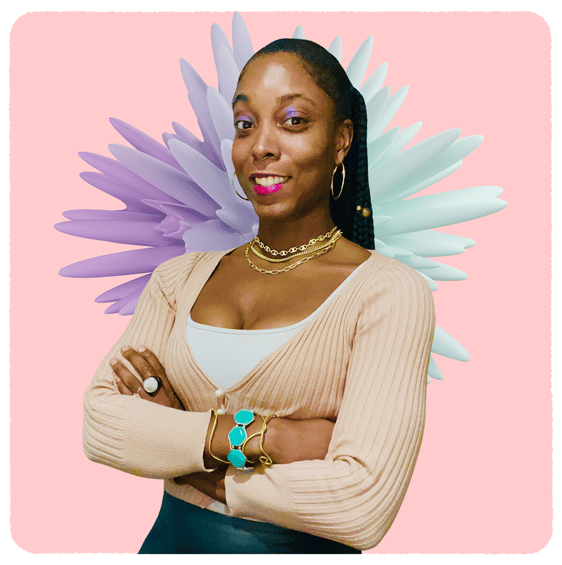 Debbie Deer acts as the director of the IBPOC Fellowship, CEO of Debbie Deer Productions, and CEO of Orion Digital Innovations and Creations Inc.
Debbie Deer acts as the director of the IBPOC Fellowship, CEO of Debbie Deer Productions, and CEO of Orion Digital Innovations and Creations Inc.
Why was that program so lifechanging for you?
DD: Oh my gosh, so... before XR, I was in digital media, and I still am — I have a production company called Debbie Deer productions. And, I was just kind of experimenting with my piece, The Nefertiti Experience, which was initially theatre but when we saw the Mandalorian and Unreal Engine came out, we saw the potential of making an XR piece — that’s what started my career.
But the program itself, the fellowship, basically it allowed me to go from mentee that was just interested as an enthusiast or hobbyist to full on 100% rockets go incorporated company/fellowship director because the need kind of presented itself. Like, they needed someone who was going to kind of take the reins and say, ‘Ok well you’ve had more experience than most as a mentee, how can you translate that information as a director?'
So, being a mentee with the OYA Scale Up Immersive, similarly, I went from being curious to how I get into the business to being mentored by people who are working with, not to namedrop but, JayZ and Agile Lens… I just starred in the Christmas Carol VR which today the Apple Pro Vision featured as like a feature show, so… working with Epic Games, working with Agile Lens… yeah, my life kind of changed in the sense that it quickly went from you’re a mentee, you’re building a plane, now you’re flying the plane, now you’re teaching others how to fly it.
 Oya Scale Up Immersive Media Lab is a free specialized 5-month accelerator program, crafted specifically to catalyse the growth of 10 Black-owned media production companies.
Oya Scale Up Immersive Media Lab is a free specialized 5-month accelerator program, crafted specifically to catalyse the growth of 10 Black-owned media production companies.
Has the fellowship changed much?
DD: Great question. So, it’s changed a lot. Initially when we did it last year, it was more theory-based, like, we were learning together. And, there were some beautiful things that came out of it because we gave opportunity to emerging indigenous, black, people of colour artists. But, we didn’t have as much structure, we didn’t know what were important aspects of production like what should we ask the mentors to talk about; what do the fellows need?
So, this year we’ve really improved on that by being a lot more critical with the curriculum, like tailoring it to be more practical-production based in the build versus more theoretical-literary based. And, Arcweave, to plug you all, you have been a really instrumental part because I learnt your software through the OYA Scale Up Immersive program. My mentor said, 'This is an awesome piece of software, it’s like user experience, user interface, you can write scripts in it too...' It just… there was nothing else like it. Now I know Arcweave a lot better and I was able to share that with the fellows so, that’s part of the improvement as well.
 The IBPOC Fellowship was created by Single Thread Theatre Company in order to explore the emerging medium of XR (extended reality).
The IBPOC Fellowship was created by Single Thread Theatre Company in order to explore the emerging medium of XR (extended reality).
How do you think the partnership between Arcweave and the fellowship will enrich and improve the program?
DD: I think it will tremendously improve the program. Firstly, it’s nice to just be supported, you know, and seen by another software company that cares about gaming and XR productions so, that’s really awesome. And then, having your expertise on hand to say, you know… there are things even I don’t know about Arcweave, there are things even the tutorials may not go through, but we would have you right there to assist us. I think that would be very meaningful to the fellows, and they’re all pumped to use it, they’re like, ‘We love this, it’s so cool’.
Do you mind sharing more about the simulation that the fellows make?
DD: The simulation is called ‘Hidden Place’ and the fellows decide pretty much everything from the theme, to the script, to the post-production. We’re using VR chat as our platform and we chose VR chat because that was platform we used for the PXR conference and we already had developers, Myles Steel and Cole, make the world. So, we said, ‘Okay we already have built in support to allow the fellows to learn 3d modelling, learn about VR world-building and kind of put it all together’.
I’m really excited to see the simulation and I heard that it's coming out soon, right?
DD: Yep, March 28th is the private showing.
You mentioned that you use Arcweave in the project but to what extent do you use it? How has Arcweave actually been incorporated into the workflow of the program?
DD: It’s incorporated in our storyboarding and user-experience/user-interface. So, basically, it’s the fellows bridge with the developer. They’re going to be putting in their script, their character descriptions, their locations, very much using the software as it’s laid out, and then they’re going to give that to our developer, Myles, to basically build from that concept. But it’s also being used to house assets like audio and models and such so it’s being used as a hyperlink database for that.
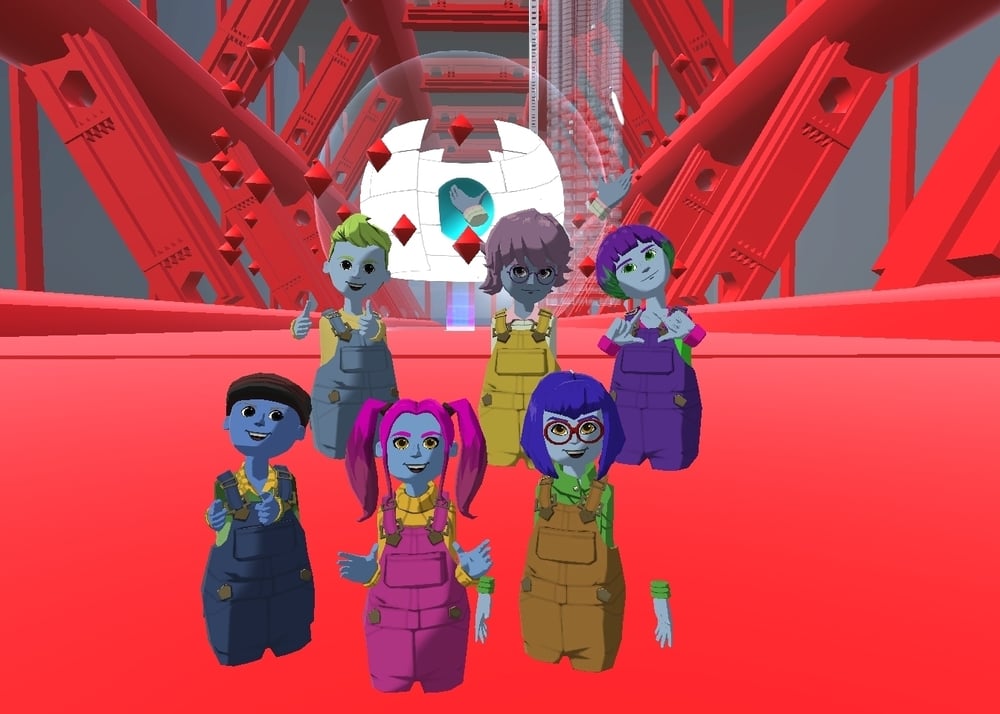 Collider (2021) was devised by Single Thread Theatre Company with a cast of Canadian actors through an entirely virtual process.
Collider (2021) was devised by Single Thread Theatre Company with a cast of Canadian actors through an entirely virtual process.
Moving away from the fellowship and more towards your projects, do you mind sharing more about the Nefertiti Experience - what spawned it, what inspired you to make it, and the process of building it?
DD: Oh my gosh… I’m going to try to be short because it’s such a long process. So, I’m Jamaican, I’m not Egyptian, but I’ve always loved African history and Nefertiti had an infamous bust — like the crown is being held in the MUSE Berlin Museum. My Mom was living in Egypt and came back with a paragraph on the Queen, like a book with a paragraph. But I was like, 'She was more than just a pretty woman, like… who was she?' So, I literally just started to conceptualize what her story was and then I wrote a script in a couple days after reading it and then I kind of cross-referenced it with Google. And, funnily enough, some of what I thought her life might be like was actually her life.
So, you could call that channelling… you could call that… whatever. So, I wrote this play, I parked it, and then just before Covid, I put it in to get funding and it got funded by Toronto Arts Council and Canada Arts Council. So, we were like, ‘Yay we’re gonna do a play’… and then Covid happened. So, then we were like, ‘We’re not doing a play, we’re gonna do a mixed reality production’ but we didn’t have a place to do it. So, my friend had like a coat hanger, like a ‘studio’ but we converted it into a studio. So, we took this coat hanger, we painted it green, taught each other Unreal Engine and… just like really, just built a crew and kept it going.
So, we filmed it in three days and then, when it was done, the Toronto International Film Festival featured it for deep focus and then last year it got into the Fringe Festival. We didn’t get to do the show run but we’re still picking that up for this year. It’s been featured at the Center for Social Innovation, and it’s been featured at Blockobana, Black Market, VRTO... So, really the inspiration for it was that I wanted to tell a story about an empowered black queen that had some afro-futuristic elements to it that VR was a perfect tool to use to do that.
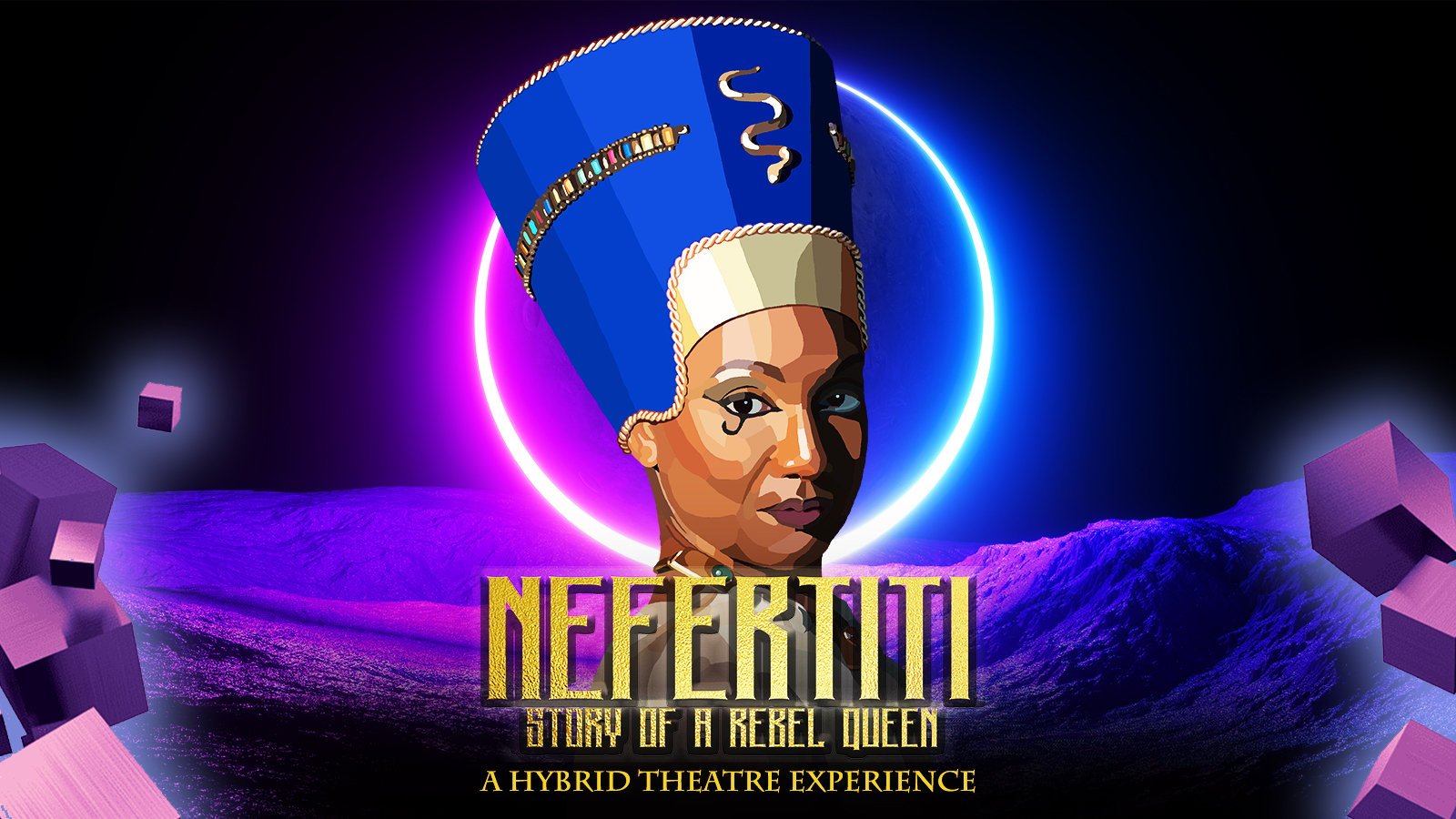 Set in Ancient Egypt, Nefertiti: Story of a Rebel Queen is an Afro-futuristic, XR theatre production including virtual, augmented, and mixed reality.
Set in Ancient Egypt, Nefertiti: Story of a Rebel Queen is an Afro-futuristic, XR theatre production including virtual, augmented, and mixed reality.
Well congratulations on getting it featured and funded! That’s such a huge accomplishment.
DD: Yeah, it’s not easy! But thank you, I appreciate it.
Why do you think Arcweave specifically is a useful tool for productions like the Nefertiti Experience?
DD: Well, one, it’s very intuitive – I had never used anything like that before and the moment I started using it, it was very simple. So, that’s easy because usually when you don’t have experience with something it’s really intimidating to just get a piece of software and then make it work. Also, it’s very conducive to merging gaming with theatre because it has an interface that allows you to input many things, but it also allows you to house the information concisely and update, share, build… like I think it’s one of the few software I’ve seen that works for XR production without being clumsy.
A lot of STEM subjects like XR are often are seen as very male-dominated fields but theatre is seen as having a much more diverse cast. How do you think this merging between XR and theatre will disrupt the conventions of the field?
DD: Wow, you said it beautifully, like… theatre is a playground, it’s a freaky little playground [laughs]. And I mean that in the best sense because I grew up in a theatre, you know, my earliest training was 6 years old in the Jamaican Musical Theatre Company and I was in that till I was 18. So, I had 12 years of training.
And theatre is the epicentre of storytelling so to me it’s like disrupting your grandpa. Like, your grandpa was always there but you’re just finding new ways for grandpa to tell stories. So, I think the merger makes complete sense because we’re just storytellers who probably like more gaming more than the average, but just want to find new ways to elevate your story. Like, to me, if I tried to do Nefertiti in a theatre, I would be using lighting, props, building all of ancient Egypt and throwing some portals in there and crystals and magic that would cost millions probably, but doing it in XR was like a fraction. So, it gives us agency and with agency where we didn’t have opportunities in the ‘real world’ we can create them in XR.
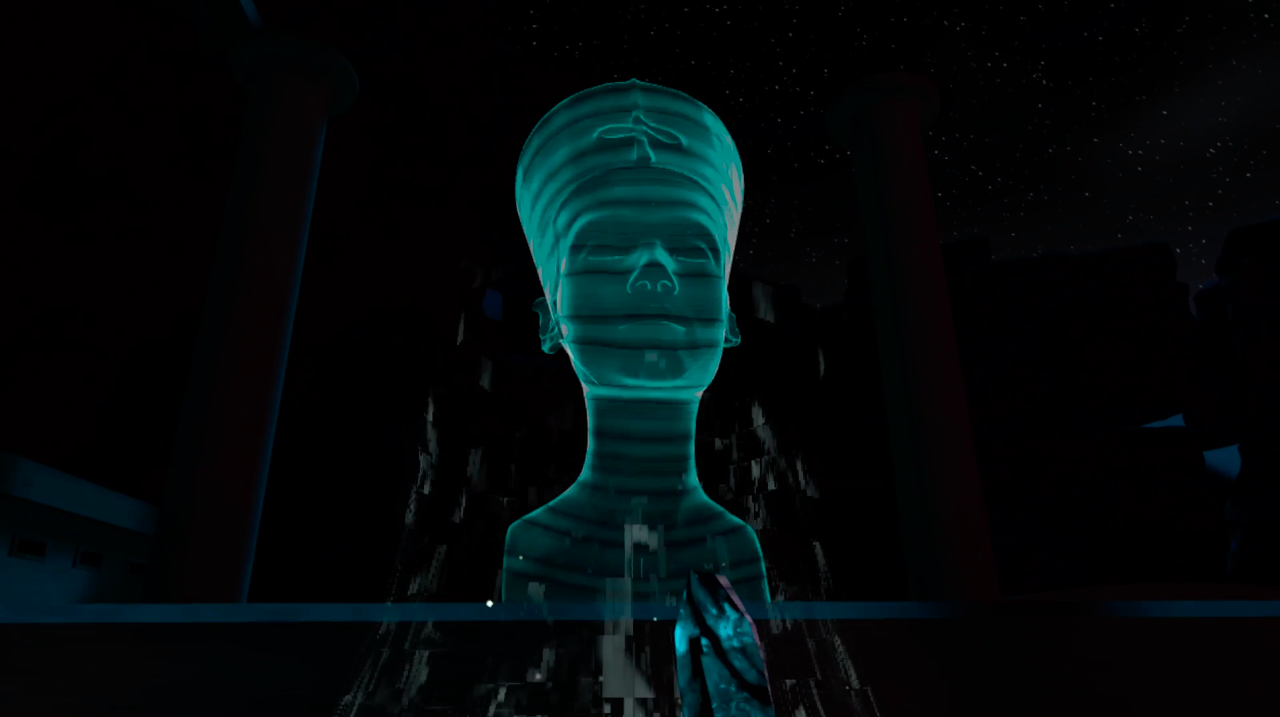 Screenshot from The Nefertiti Experience.
Screenshot from The Nefertiti Experience.
You’ve teaching for two years, so over the course of your teaching has there been any major pain points or challenges that either you or your students have found with Arcweave?
DD: Pain points with Arcweave? Honestly, I really can’t say that there have been. I think that the biggest pain point would be personal like some people say, ‘I can’t do software like I can’t, my brain doesn’t work that way’ but most people who do get assigned Arcweave really enjoy using it. And I’ve actually learnt things from fellows who have said, ‘Hey, do you know that Arcweave is doing audio like this now?’ And I’m like, ‘No, but thank you!’
How about any pain points with the industry?
DD: I mean, I try to like not to focus on being like ‘black female’ in the biz, but I am, and occasionally I do feel that gaze influences my opportunity. So, that goes across funding, support, like, if I go for a project and say, ‘Hey, so here’s a project about a black queen’ and I’m speaking to 10 white males, they may not feel compelled to resonate with that story because it’s not their lived experience and they might not have the empathy to see why it’s important. And I have had that happen.
So, I think the biggest pain point is that there’s still those normative, patriarchal, heteronormative in some instances, just… boot on the neck. But I think me just being in the industry and continuing to work in the fellowship and bringing in people who are diverse and just kind of building a network of that has been very helpful in breaking down those barriers.
Previously you mentioned the PXR Conference. Could you tell me a bit more about that? What is the conference about and what does it aim to achieve?
DD: Yeah so, the PXR Conference is the performance and XR conference. It started 3 years ago by Liam Karry of Single Thread Theatre and Jake Runeckles who’s our production manager. And basically, it’s pretty much the only live XR theatre conference in Canada. So, the purpose was to provide the theatre community with a space to explore XR work and showcase it but also provide a space for marginalized folks to do the same but also with the fellowship, an opportunity to learn XR theatre.
 Screenshot from the 2022 PXR Conference.
Screenshot from the 2022 PXR Conference.
So, last question, as the fellowship director, do you have a message for the theatre industry as a whole?
DD: I would say the message would be, 'Let’s open up the space to people who serve the community'. Because even when I was growing up in Jamaica, it was very Eurocentric and very male-dominated and it had an aesthetic. Shakespeare was more desirable than our grass-roots African base plays, for example, like it was seen in a higher regard. And I think in some ways it still is. But the people behind it are very diverse, they’re queer people, they’re coloured people, they’re women, they’re men, they’re non-binary, like we are the ones who drive that machine.
So, I think we should flip the role and give more autonomy and more opportunity for us to share the space and also open your mind to XR because XR can elevate theatre in a way that I don’t think anything else in our modern lives can. And theatre was, you know, kind of on the decline because it’s the grandpa of storytelling so…
So, I say embrace us, give us opportunity, and let’s go from there.
Thanks to Debbie Deer for taking the time to answer all of our questions and for her insight. Make sure to visit the Debbie Deer Productions website and follow Single Thread Theatre on Instagram and Twitter/X.